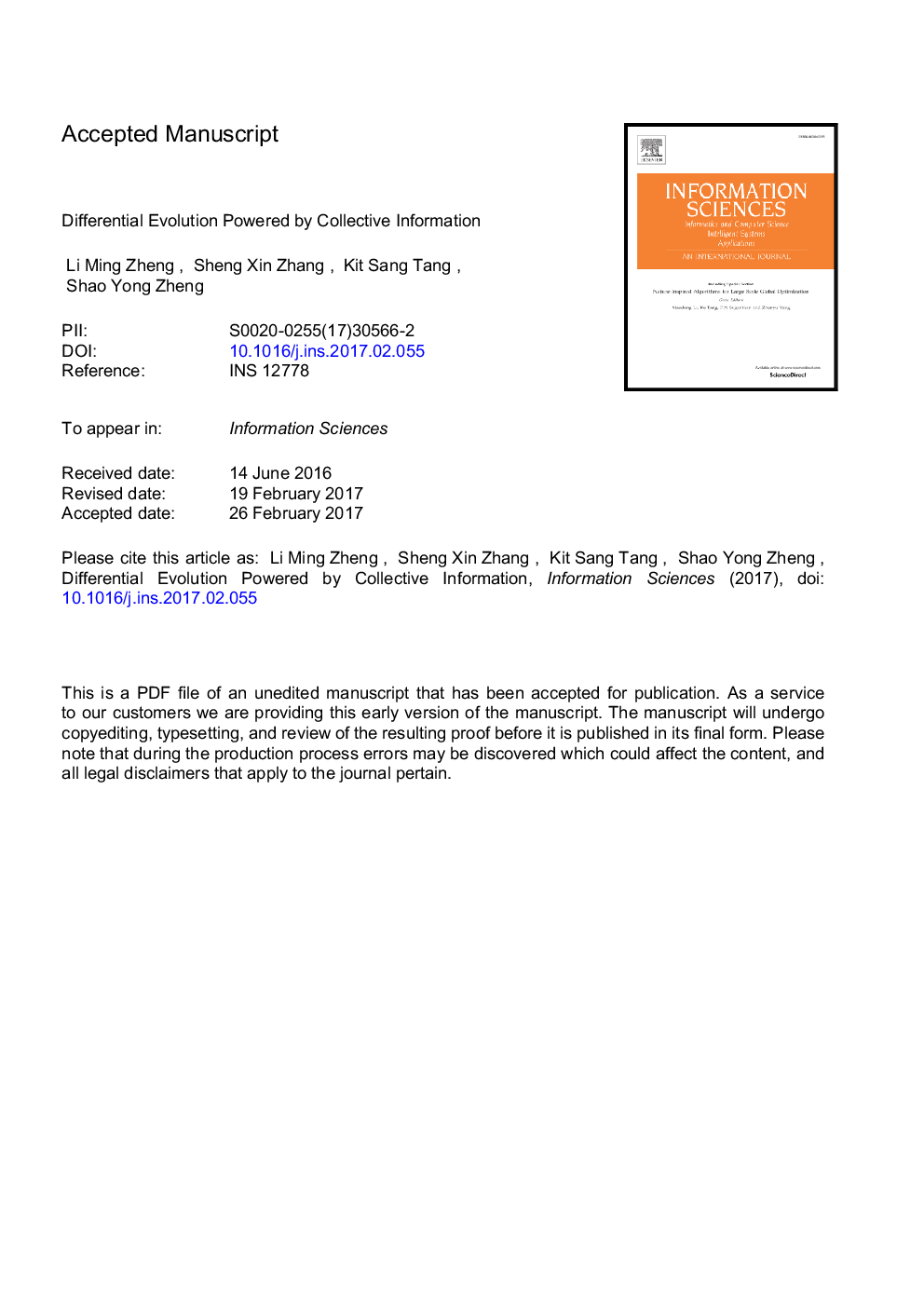| Article ID | Journal | Published Year | Pages | File Type |
|---|---|---|---|---|
| 4944491 | Information Sciences | 2017 | 36 Pages |
Abstract
Differential evolution (DE) algorithms have demonstrated excellence performance in dealing with global optimization problems. In DE, mutation is the sole process providing new components to form potential candidates, and it does so by combining various existing solution vectors. In the past two decades, many mutation strategies have been proposed with the goal of achieving better searching capability. Commonly, the best candidate in the current population or its subset is employed. In this study, we challenge the approach of adopting only the single best vector and suggest enhancing DE with the collective information of the m best candidates. The evolutionary information of these m best candidates is linearly combined to form a part of the difference vector in mutation. Moreover, the collective information can also be used in crossover. Consequently, a new DE variant called collective information-powered differential evolution (CIPDE) is constructed. To verify its effectiveness, CIPDE is compared with seven state-of-the-art DE variants on 28 CEC2013 benchmark functions. Numerical results confirm that CIPDE is superior to the other DEs for most of the test functions. The impacts of the components of CIPDE and performance sensitivities to system parameters are also investigated.
Related Topics
Physical Sciences and Engineering
Computer Science
Artificial Intelligence
Authors
Zheng Li Ming, Zhang Sheng Xin, Tang Kit Sang, Zheng Shao Yong,
